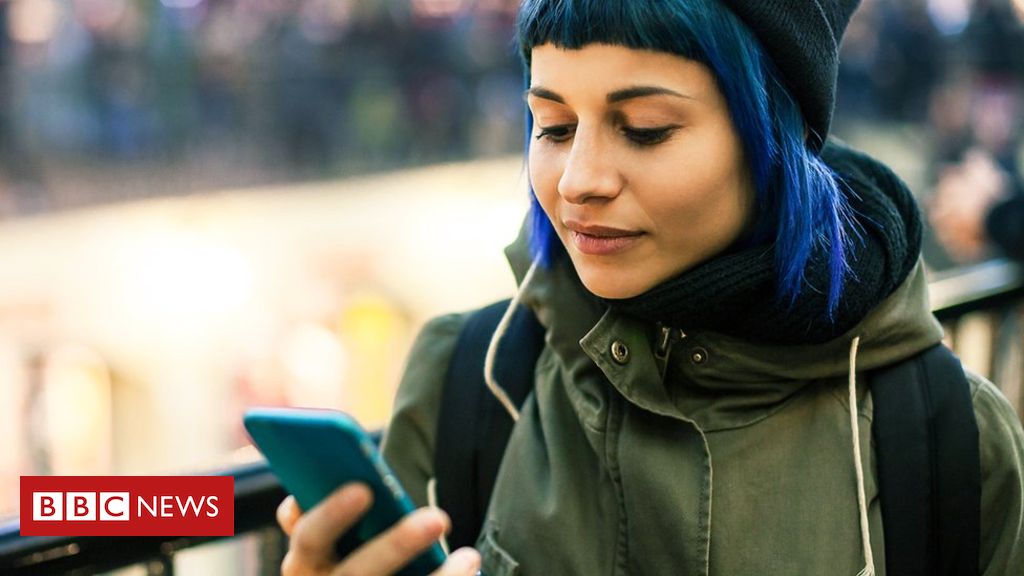Millions of people in the UK will soon be asked to track their movements to limit the spread of coronavirus.
The government says hiring is well under way for a team of 18,000 to trace the contacts of those infected.
Communities Secretary Robert Jenrick says ”all of society” will have to play their part in contact tracing, by downloading a nationwide app when it is released in a few weeks’ time,
So how does contact tracing work, do you have to take part – and what happens to your data?
What is contact tracing?
Contact tracing is a method used to slow down the spread of infectious outbreaks. It is commonly used in sexual health clinics, when infected patients are told to contact anyone with whom they have been intimate.
In the coronavirus pandemic, it means tracking down anyone sufferers have been in prolonged contact with, to potentially ask them to self-isolate.
This is often done through phone calls to the friends and family of coronavirus sufferers, complemented by an automated location-tracking mobile app.
Unlike tracing in sexual health clinics, it can be difficult to know who you’ve come into close enough contact with to spread coronavirus. And scientists don’t entirely agree what “close contact” is.
The World Health Organization recommends staying one metre apart, while the UK government recommends two.
Its scientific advisers say two seconds spent one metre apart is as dangerous as spending one minute two metres apart.
Only distance will be captured by the app, so it will miss many of these key risk factors, like length of time spent in proximity with some and in what setting (inside or outside, well-ventilated or not).
These will have to be picked up in discussions with the “army” of contact tracers.
Contact tracing is already being used extensively by various countries, including Hong Kong, Singapore and Germany.
The UK is planning to roll out its contact tracing app and phone team by the middle of May.
NHS rejects Apple-Google coronavirus app plan
Coronavirus: UK contact-tracing app ‘ready in two to three weeks’
Media playback is unsupported on your device
Media captionWATCH: What is contact tracing and how does it work?
What will contact tracing look like in the UK?
The 18,000-strong team will feature about 3,000 civil servants and health workers, and 15,000 call handlers.
This telephone system will be used in tandem with a tracing app, available to download on smartphones.
Using Bluetooth, the free app tracks when its users come into contact with each other, automating the tracing process. If a user develops coronavirus symptoms, it is up to them to let the app inform the NHS.
Their disclosure may trigger an anonymous alert to users with whom they recently had significant contact, again potentially asking those people to go into quarantine or be tested.
For those without smartphones, an alternative could be a Bluetooth-enabled wristband, like those being used in other countries to detect lockdown breaches.
Will they help end lockdown?
Contact tracing has been credited with helping to lift restrictions in other countries, when combined with other measures.
South Korea never went into lockdown thanks to an early strategy of extensive tracing, combined with mass testing.
The nation not only asked citizens to recall their movements, it used credit card transactions, CCTV footage and mobile phone tracking to piece together where they had been. After a daily peak of 900 cases, it is now diagnosing just a handful of new daily cases.
If adopted widely enough, contact tracing might help ease UK restrictions, although it is unlikely citizens will be tracked to that extent.
The UK government first attempted contact tracing early on in the outbreak, before there were too many cases for it to be effective.
However, less movement under lockdown means new outbreaks should now be easier to track.
PA Media
A Co-19 tracing app has been launched in Australia
Phone tracing can be very labour intensive and time consuming, with tracers in Ireland reporting making about 40 phone calls per infected person.
The mobile app is easier, but take-up will have to be colossal for the virus to be totally supressed. Academics advising the NHS estimate 80% of smartphone users – 60% of the population – would have to actively use it.
By comparison, about 67% of UK smartphone users have downloaded messaging app WhatsApp.
People would also have to be honest about displaying any potential symptoms and inform the NHS.
What can the government do with my data?
Not everyone is happy with the government and third parties being given access to people’s data. Civil rights group Liberty said the government must take the risks seriously, and should not make installing the app a condition to leaving the lockdown or returning to work.
”Millions of us are going to need to trust the app and follow the advice it proes,” says NHSX, the digital development arm of the health service. It says the information gathered will only ever be used for health and research purposes, and that the app can be deleted at any time.
The UK app will use a centralised model, meaning the matching process will take place on a computer server.
An alternative, decentralised model was put forward by Apple and Google, where the exchange happens on people’s handsets.
The tech giants say their version makes it harder for hackers or the authorities to use the computer server logs to track and identify specific indiuals.
But NHSX says its centralised system will help give it more insight into how the disease spreads and help it to make the app more efficient.



